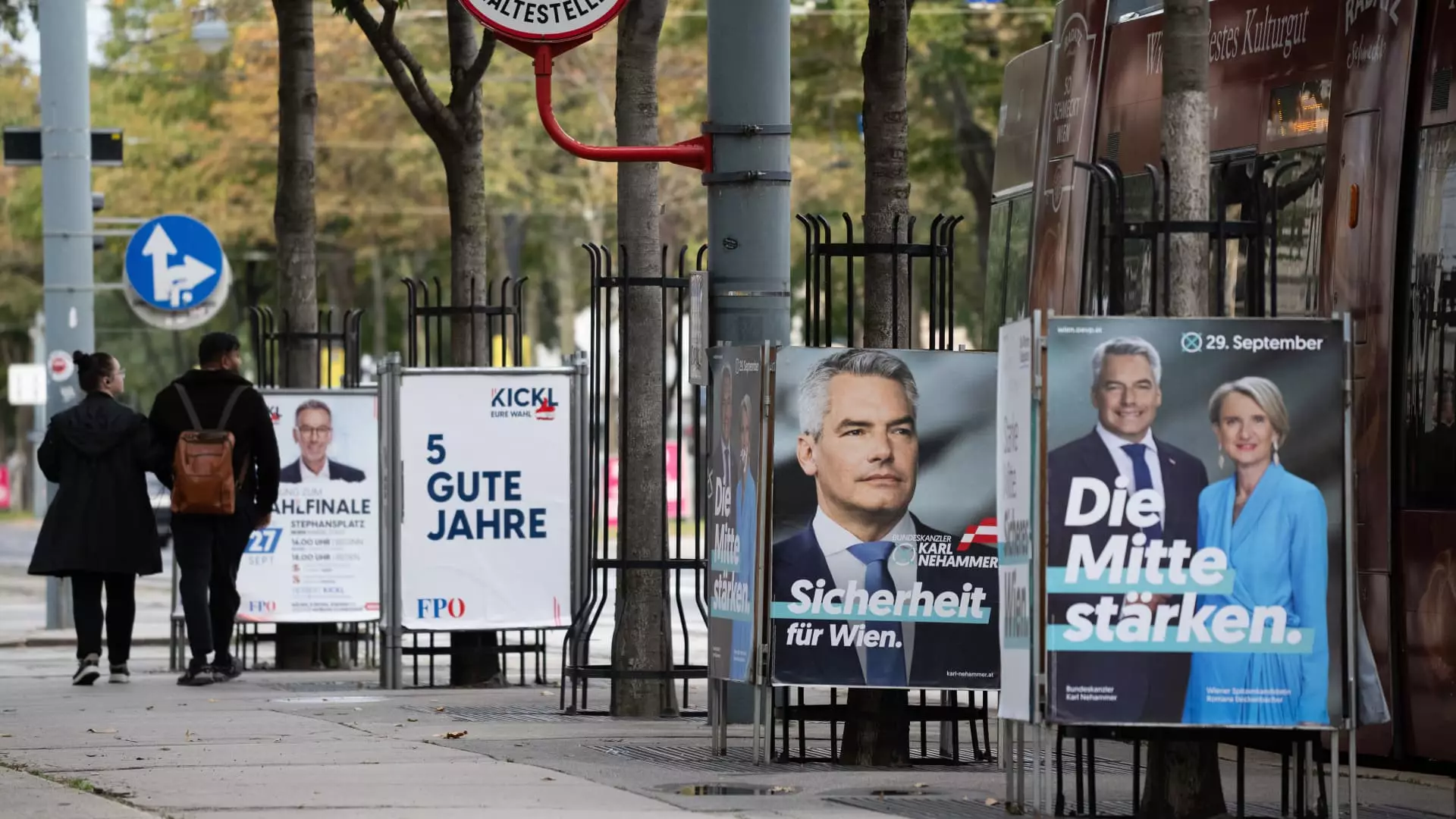The political landscape in Austria has undergone a seismic shift following the recent elections, where the far-right Freedom Party (FPÖ) has emerged victorious, securing 29.1% of the votes—a significant increase that positions it as a formidable force in Austrian politics. This outcome could not only redefine the nation’s governance but also shift the broader dynamics within Europe, influencing the ideological spectrum of political discourse and the geopolitical balance between Russia and the West.
The FPÖ’s resurgence comes on the heels of a dramatic decline in its fortunes, particularly after its fall from grace in 2019 due to a corruption scandal. The party’s leader, Herbert Kickl, often heralded as the “Volkskanzler” or “People’s Chancellor,” has successfully tapped into public discontent triggered by soaring inflation and Europe’s ongoing migration crisis. This crisis has seen droves of individuals fleeing dire circumstances, swelling the ranks of refugees and immigrants across the continent. The FPÖ’s 29.1% vote share not only reflects a shift in public sentiment but also highlights the growing acceptance of far-right rhetoric in mainstream politics.
Kickl’s agenda is steeped in anti-immigrant sentiment, advocating for stringent immigration policies that include the controversial concept of “remigration,” effectively calling for the deportation of what he refers to as “unwanted strangers.” This approach resonates with a segment of the Austrian populace anxious about demographic changes, economic competition, and cultural integration. In this way, the FPÖ has intertwined national identity with immigration policy, compelling voters to align with their platform.
Despite the electoral victory, forming a stable government may prove to be a Herculean task for FPÖ. As other major parties in Austria have categorically ruled out coalitions with the far-right, the FPÖ’s path to governance becomes fraught with obstacles. The ruling conservative party, the Austrian People’s Party (ÖVP), which garnered 26.2% of the votes, may have once been a potential ally, yet Chancellor Karl Nehammer remains staunchly opposed to collaborating with Kickl. This fragmentation hints at a protracted period of political instability, where various factions may be grappling for power while the FPÖ, despite its electoral success, is sidelined.
The party’s historical roots, stemming from individuals associated with Hitler’s SS, further complicate its political legitimacy. While Kickl and the FPÖ leaders adamantly reject such contemporary comparisons, the historical context looms large in the public consciousness, affecting perceptions of their legitimacy and mainstream acceptance. If the FPÖ manages to govern, its controversial past and hardline stances may invite scrutiny both domestically and on the international stage.
Austria’s election results send ripples through the European political landscape, underscoring a growing trend in which far-right parties gain traction, blurring the lines between mainstream and extremist positions. The rise of the FPÖ aligns with recent electoral successes of similar parties in Germany, France, and the Netherlands, suggesting a wider European pivot towards nationalist and anti-immigrant sentiments. This trend not only threatens the established political norms but also raises pressing questions about the future of European unity and cooperation.
As FPÖ seeks to redefine immigration policies and potentially retreat from support for Ukraine amidst ongoing geopolitical tensions exacerbated by Russia’s aggression, Austria’s political landscape could shift away from its historically neutral stance. The far-right’s connections with Russian leadership further complicate the EU’s diplomatic approaches, compelling European allies to reassess their strategies in addressing both internal and external challenges.
The political uncertainty precipitated by the FPÖ’s election victory could herald a new chapter in Austria’s history, one fraught with ideological contests that challenge the core values of democracy and diversity. As Austria navigates this precarious period, the dynamics of coalition-building, public dissent or support for far-right policies, and international relations will play critical roles in determining its future.
In the shadow of Adolf Hitler’s legacy, Austria confronts a troubling paradox—reconstructing its identity while wrestling with the far-right’s ascendance. The people of Austria now stand at a crossroads, where the choices they make in the coming months could irrevocably alter not only their national landscape but also the broader ethos of Europe itself. The question remains: will the nation’s historical lessons inform the path forward, or will they be overshadowed by the siren call of far-right populism?


Leave a Reply